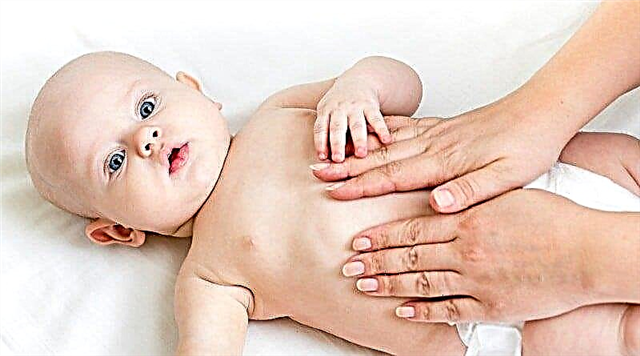
The problem of having babies ahead of schedule is acute for the whole world. Doctors are trying to understand the reasons why gestation is terminated prematurely in order to reduce the number of prematurity cases. In Russia, these issues are addressed by the Association of Perinatologists. Its full name is "Russian Association of Perinatal Medicine Specialists", and its abbreviation is RASPM.

How is premature birth prevented in Russia?
In our country, there is a 3-level system of assistance to expectant mothers:
- Level 1 - obstetric stations located in the districts;
- Level 2 - maternity hospitals, as well as a regional or district hospital, which has a maternity ward;
- Level 3 - perinatal centers.
For this system to work properly, pregnant women should know how to use it. For example, if the expectant mother lives in a remote area, she should contact an obstetrician-gynecologist with an increase in pressure, edema and other problems with gestation in order to make the necessary examinations and thereby prevent premature birth.

If the doctor discovers serious abnormalities during pregnancy, the woman will be referred to a level 2 or 3 facility. There, she will undergo additional research, using the methods that modern perinatology uses, from ultrasound examination to complex genetic tests.
If gross malformations are identified, a perinatal consultation is held, at which the feasibility of carrying and methods of prolonging pregnancy are discussed. In some cases, a pregnant woman is monitored for a long time in order to determine the due date and tactics of their management.

How do you save a premature baby in Russia?
A whole system has been developed to provide assistance to babies born earlier than the expected date, including the transportation of the baby by special transport and the care of the child in the intensive care units in children's hospitals.
For transportation of premature babies, reanimobiles are used, as well as helicopters and airplanes, in which there are incubators with a certain temperature regime, humidity and other conditions that are important for premature babies. In such vehicles, it is possible to provide emergency assistance to the baby. For this, they have ventilators and oxygen supply devices.

When the baby is admitted to the hospital, optimal conditions continue to be created for him. They maintain a certain humidity and temperature in the room, protect the baby from noise, control the level of light, limit tactile irritations, and also monitor the functioning of the vital organs of the toddler (respiratory and cardiac systems).
Is it possible to predict the survival of the baby?
If the baby was born prematurely, doctors make every effort to save the baby's life. The question of the survival of the crumbs should be asked not only after childbirth has ended, but also during gestation. Thanks to ultrasound, computed tomography and other studies, possible pathologies are revealed in pregnant women, which require enhanced monitoring of the woman and therapeutic measures immediately after childbirth.
Whether the baby will survive depends primarily on the pathological conditions that provoked premature birth. If these are inoperable defects in a child, the prognosis is poor, despite the possibility of operations and the use of modern technologies.

Newborn mortality in Russia
Among all babies who die before the age of one year, premature babies make up about 75%. Most of them are represented by children whose body weight is very low or extremely low. Recall that in our country, since 2012, babies weighing more than 500 g and a gestational age of 22 weeks have been registered, and the mortality rate of such small babies is very high.
Problems of nursing premature babies in our country
The main problem in Russia is a large area of the country and a different population density, which prevents the full implementation of modern nursing technologies throughout the country.

At the moment in Russia there are difficulties with the transportation of babies born prematurely and with the introduction of innovations in remote areas. The lack of qualified personnel is also a problem.
RASPM activity
The Association is preparing medical workers to solve the problems of perinatology, the main of which is the reduction of infant mortality. The organization develops and disseminates the knowledge and skills that any doctor involved in perinatal medicine should have. For this, guidelines are created and conferences are regularly held to train doctors.

Also, every year RASPM holds a congress, at which doctors are introduced to new trends and developments in perinatology.
The role of parents in nursing a premature baby
Contact of a mother with an early-born baby is extremely important for nursing a baby. Immediately after childbirth, the baby is spread on the mother's chest for the first tactile contact.

Much attention is paid to breastfeeding and the preservation of lactation, although at first premature babies are fed parenterally and through a tube. In addition, while the baby is in the hospital, the mother is taught how to care for the baby, which she will use after discharge.
Help groups
In our country, in addition to official perinatal centers and nursing departments for premature babies, there are help groups that are created by caring active people. Parents of premature babies are often involved in the creation of such groups, as happened with the St. Petersburg group "Yarushka". She appeared in 2012 and since then has been helping hospitals, orphanages and crisis centers, buying equipment and supplies for them used for nursing premature babies, including abandoned ones.
Together, the group members and sponsors buy inhalers, suction devices, respiration monitors, microscopy devices, pulse oximeters and other equipment in medical institutions. Diapers, clothes, hygiene items and other necessary things are purchased for the babies that the mother refused.




